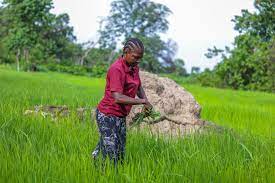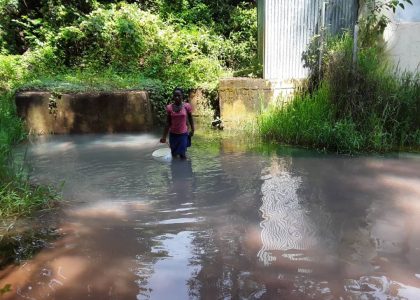
Introduction:
In the midst of unprecedented challenges presented by the war in Ukraine, the enduring COVID-19 pandemic, and the ever-changing climate, the global food system stands at a crucial crossroads. Rather than perceiving these disruptions as insurmountable obstacles, they unveil an opportunity for nations, including Nigeria, to fortify their food system resilience initiatives. Rosana Empowerment Foundation (REF) fearlessly addresses this matter, contemplating whether food system resilience is a mere abstract concept or an actionable framework with tangible outcomes. Recognizing the imperative to empower key actors within the food system, REF positions food system resilience as a pivotal concept for policymakers and the humanitarian community.
KEY INSIGHTS
Global Shocks and Stressors:
In the face of challenges posed by the war in Ukraine, the ongoing pandemic, and climate change, REF encourages a collective acknowledgment of their impact on the vulnerabilities of the global food system. These challenges are viewed not as roadblocks but as catalysts for transformative change.
Strengthening Resilience Initiatives:
REF passionately emphasizes the urgency for nations, including Nigeria, to fortify their food system resilience initiatives. By reframing uncertainties and challenges as opportunities for growth, countries can actively enhance their adaptive capacities.
Conceptualizing Food System Resilience:
Far from being a nebulous concept, REF urges a closer scrutiny of food system resilience. It challenges us to explore the practical implications embedded within, transforming it from an abstract idea into an actionable framework capable of addressing real-world challenges.
Capacity Building for Key Actors:
The essence of resilience lies in the strength of its actors. REF underscores the importance of enhancing the capacities of key players within the Nigerian food system. Equipping them to navigate and adapt effectively to disruptions makes a robust and resilient food system achievable.
Role of Policymakers:
REF envisions policymakers as architects of resilience, capable of leveraging the concept to formulate and implement policies that enhance the adaptive capacities of the Nigerian food system. Their visionary role becomes instrumental in steering the nation towards sustainable food security.
Humanitarian Community Engagement:
Recognizing that food system resilience is not a solitary endeavour but a collective effort, REF invites the humanitarian community to engage actively. This acknowledges the relevance of resilience in addressing food security challenges, with collaborative efforts paving the way for comprehensive solutions.
Lessons Learned from Collaborations:
Drawing on invaluable experiences from collaborations with esteemed institutions, REF emphasizes the power of shared knowledge. These lessons serve as guiding lights, illuminating the path towards innovative solutions and impactful interventions.
CONCLUSION
As REF embarks on this exploration, the foundation envisions unravelling the layers of food system resilience, transforming it from an elusive concept into an actionable framework. Through collaboration with renowned partners, REF seeks to distil lessons learned, contributing to the discourse on strengthening global food systems. With nuanced insights and practical strategies, REF aims not only to catalyse positive change but to build a more resilient and sustainable future for food systems worldwide. By facing challenges head-on, we discover the transformative potential embedded within resilience – a beacon guiding us towards a brighter and more sustainable tomorrow.





